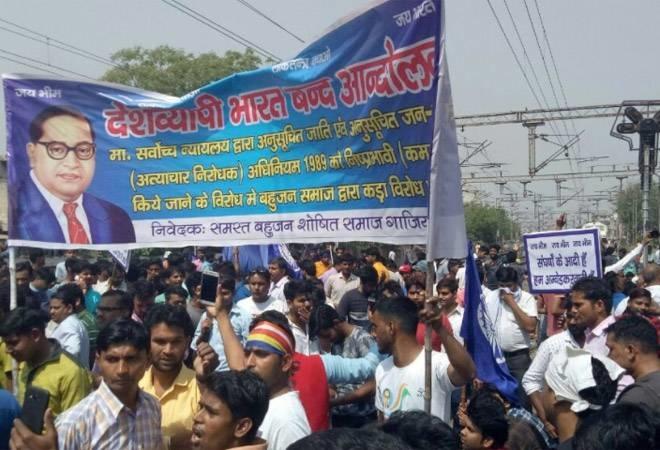Why the SC Verdict On the SC/ST Act is a Misdirected Step

Image Courtesy:Business Today
The Supreme Court’s judgement regarding the Scheduled Castes and Scheduled Tribes (Prevention of Atrocities) Act, 1989 on March 20 has received widespread condemnation from various quarters of the society, although the protests on April 2 against the judgement were mostly led by Dalit groups. In some parts of the country, protests took a violent turn following infliction of force on the protesters, by the police. In light of the protests against this decision of the Court, the government has filed a review petition. However, to understand the extent of the dilution of the Act and its probable impact, the substance of the Supreme Court’s judgement as well as the existing ground realities must be pondered upon.
The appeal which led the Supreme Court to effectively dilute the Act was filed by one Subhash Kashinath Mahajan. Mahajan was the Director of Technical Education at the time the complaint under the Act was filed against him. The complainant worked as a storekeeper at the Government College of Pharmacy, Karad. From the judgement, it can be inferred that the complainant had a history of filing complaints under the Act, whenever a departmental inquiry or disciplinary procedure was about to be initiated against him – even if it was a consequence of his own misconduct. Therefore, it was a fair expectation that appellant in the case receives justice. However, the final verdict was not specific to this isolated incident. The apex court instead issued directions regarding the functioning of the Act itself.
The issues that the court intended to address were:
- Whether directions can be issued by the court to protect the fundamental right under Article 21 against uncalled or false implication and arrests.
- Whether anticipatory bail can be granted under the Act.
The court, as per the provisions in the law, can issue directions to protect fundamental rights of a person, which is an important part of judicial activism and review. However, the second discussed is the problematic one. The court referred to section 18 of the Act—which places a bar on anticipatory bail for the accused—and questioned that if the trial court can grant regular bail, why should it be barred from granting anticipatory bail. It argued that anticipatory bail should be allowed to persons falsely accused under the Act. However, it went on to further direct that if the accused in such a case is a public servant, prior sanction must be taken from his appointing authority. In case of a non-public servant, the SSP must be satisfied that the allegations are not baseless.
The preamble to the Act in question states that it is an “Act to prevent the commission of offences of atrocities against the member of the Scheduled Castes and the Scheduled Tribes, to provide for Special Courts for the trial of such offences and for the relief and Rehabilitation of the victims of such offences and for Matters connected therewith or incidental thereto.” The Act was passed in 1989 in the wake of the series of crimes committed against Scheduled Castes and Scheduled Tribes. While the IPC is the main source of substantive criminal law, there was obviously a need to provide for a special law for these two categories of persons.
According to The Wire article by Faizan Mustafa, vice-chancellor, NALSAR University of Law, this judgement overlooked a standard practice of the courts while interpreting statutes, which is that a special law should prevail over ordinary law. Another problem with the judgement was that it went against the verdict of Lalita Kumari v. Government of Uttar Pradesh, which had mandated filing of the FIRs. By giving police the power to determine the genuine of a case, the Supreme Court has, in a way, countervailed its earlier verdict. As pointed out by Ahmed, the prevailing condition regarding the treatment of SCs and STs is appalling. Examples of incidents of violence against Dalits such as the Una and Bhima Koregaon episodes are just the tip of the iceberg. There are several other instances that have been recently reported from Gujarat, Uttarakhand and Uttar Pradesh. However, the Supreme Court has chosen to treat the exception as a rule. From this perspective, the government’s review petition is a welcome step, although its primary motive, most likely, is the victory in the 2019 general elections.
Get the latest reports & analysis with people's perspective on Protests, movements & deep analytical videos, discussions of the current affairs in your Telegram app. Subscribe to NewsClick's Telegram channel & get Real-Time updates on stories, as they get published on our website.
























